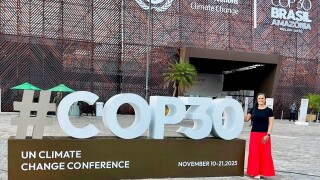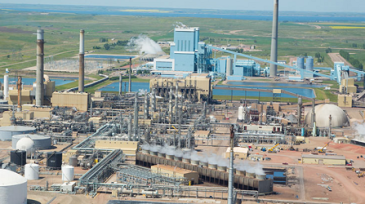Carbon capture and storage
Following the start of injection in August, Northern Lights has issued the first set of certificates documenting that the carbon dioxide captured from the Heidelberg Materials cement factory has been transported and stored permanently in the Aurora reservoir.
As COP30 wrapped up in Brazil, the country finds itself at an inflection point, positioned to deliver South America’s first carbon-dioxide injection by mid-2026.
The 14 available locations are estimated to be able to provide up to 2 gigatonnes of additional carbon-dioxide storage capacity.
-
Carbon capture, utilization, and storage can play a role in attaining net zero emissions, helping the planet achieve climate goals, and increase oil and gas production at the same time.
-
There is little question that carbon capture, storage, and utilization is destined to become one of America’s big growth industries in the years to come.
-
The US oil giant is launching a new business unit that will boost its ability to reduce its own greenhouse gas emissions along with those of other industries.
-
Using Europe as the focus, an expert panel discusses the role and opportunities for oil and gas in getting to net zero CO2 emissions.
-
Petronas and PTTEP executives spoke at a virtual symposium about their companies’ commitments to reduce carbon and their work toward a sustainable energy future.
-
US taxpayers, investors, and the American energy sector applaud long-awaited, final regulations on the CCS tax credit. The final rules provide needed clarity on how to qualify for and use the credit.
-
The first phase of the project is set for completion in 2024. As a part of the project, Equinor, Shell, and Total will establish a new joint-venture enterprise. Equinor has awarded two EPC contracts.
-
The Great Plains Synfuels Plant in North Dakota has now captured 40 million metric tons of carbon dioxide, a milestone in the synthetic natural gas production facilities’ 20-year effort to lower the impacts of energy production.
-
The storage of CO2 under the seabed may add millions of tons per year to global carbon-capture totals. The finance and investment sectors are recognizing the value these projects may bring to portfolios aligned with achieving climate-change goals
-
The first seminar looks at carbon capture, utilization, and storage as a way to achieve net-zero emissions. The second looks at the Methane Guiding Principles and its efforts to address methane throughout the natural gas supply chain.













